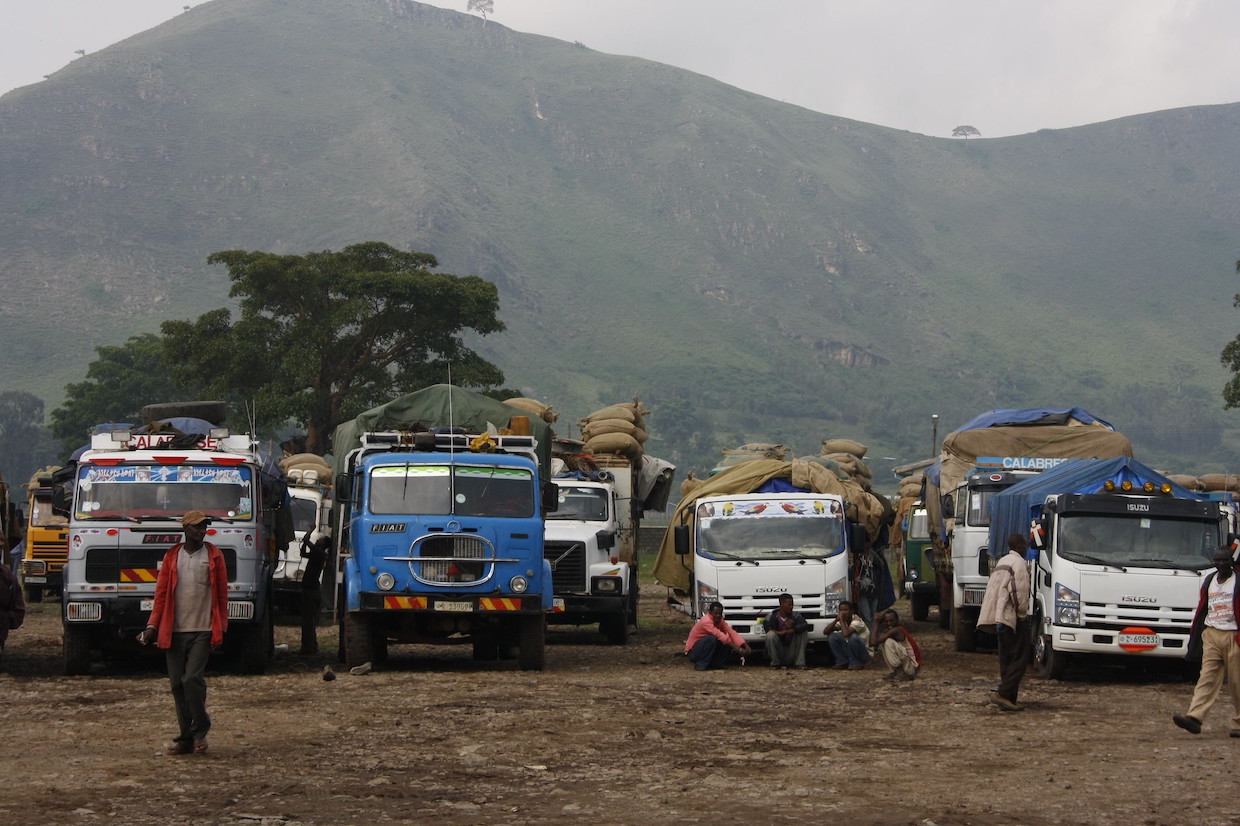
“Join the coffee queue” by DFID – UK Department for International Development is licensed under CC BY 2.0.
Ever since European legislators put their stamp on the final draft of the new EU deforestation-free supply chain law (EUDR) in December 2022, organizations in and around the coffee industry have warned of unintended consequences.
Chief among those is that certain coffee producers, especially those with fewer resources for compliance, may be shut out of markets once the law takes effect among large companies, beginning Dec. 30 of this year.
A new report from the UK-based think tank ODI adds credence to this refrain, suggesting that the EUDR law will indeed result in significant negative consequences among coffee stakeholders in lesser developed countries (LDCs).
“Without dedicated support, LDCs risk facing significant economic consequences, including reduced market access, increased compliance costs and hindered growth,” ODI said in an announcement of the report. “Modeling for Ethiopia, for example suggests severe potential economic impacts, with even a 10% increase in compliance costs resulting in nearly a 1% reduction in GDP.”
Authored by ODI’s Jodie Keane, Prachi Agarwal, Maximiliano Mendez-Parra and Dario Debowicz, the paper was funded by the Bill and Melinda Gates Foundation.
While the paper focuses on numerous countries and their relationships to three key new EU regulations — EUDR, the Carbon Border Adjustment Mechanism (CBAM), and the Corporate Sustainability Due Diligence Directive (CSDDD) — a key case study explores the Ethiopian coffee sector.
The paper builds upon a mainstream media report from Reuters in late 2023 that suggested large corporate coffee buyers may be turning away from countries in Africa in favor of more purchases from countries such as Brazil, where more compliance tools are expected to be in place.
“Different scenarios were defined to explore the potential economic effects of the EUDR on Ethiopia,” the authors of the new paper wrote. “These scenarios were developed based on key informant interviews, to derive an estimated average increased cost of compliance of 10%, and then to model the economic impact.”
The authors described the 10% figure — which in one model results in predicted economic losses of $1.4 billion in exports — as “an extremely conservative estimate.”
The paper concludes with a number of policy recommendations, as think tanks are wont to provide.
Comments? Questions? News to share? Contact DCN’s editors here.
Related Posts
Nick Brown
Nick Brown is the editor of Daily Coffee News by Roast Magazine.







Comment